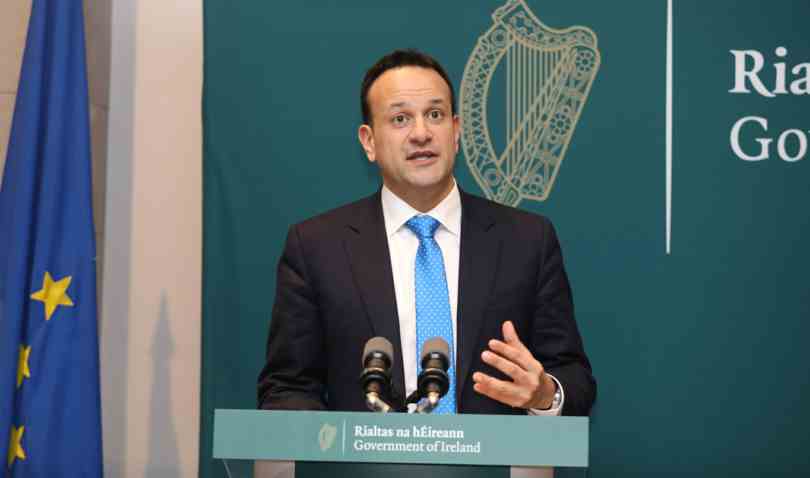Cometh the hour, cometh the man, or not as the case may be. In a brief political career largely marked by under-achievement, Taoiseach Leo Varadkar (pictured) now finds himself in a pivotal position to prop up Ireland's distressed economy.
The coronavirus health scare, and the government’s alarmist response, have brought large sections of the economy to a halt. The hospitality, retail and travel sectors have been decimated by a sudden and precipitous decline in turnover.
Thousands of small firms will go bust if remedial action isn’t taken immediately, and tens of thousands of people will lose their jobs. A sudden and sharp drop in earnings also faces the tens of thousands of freelance and part-time workers who rely on affected firms for their income.
One way to help save save these distressed enterprises is free cash. And there is only one person in the country who can deliver it – Leo Varadkar.
Only the prime minister can order his finance minister Paschal Donohoe to rebate every business in the country the €3,057 million extracted from business through Value Added Tax in January and February 2020.
Such a crude mechanism would benefit many firms that don’t need assistance, and Varadkar could fine-tune the dispersal of this helicopter money by ordering utilities to rebate their VAT windfall to consumers.
The economy is undergoing a deep shock and something has to be done immediately. This VAT rebate idea would blow a hole in the government’s budget, but so what. The shortfall could be borrowed at virtually zero cost and tacked onto the national debt.
Such a measure would be greeted by howls of indignation from Department of Finance mandarins, whose incomes and pensions are guaranteed no matter what happens in the economy. The only crisis concession they have been prepared to implement so far is to suspend penalties for late filing of tax returns.
While Varadkar and his government dither, other countries are taking decisive action. In Germany, the government has pledged unlimited loan funding to businesses impacted by the coronavirus. “This is the bazooka and we will use it to do whatever it takes,” said finance minister Olaf Scholz on Friday.
The package provides for a huge expansion of loans provided by state bank KfW. “There is no upper limit on the amount of loans KfW can issue,”said Scholz, adding that companies will also be permitted to defer tax payments.
Economy minister Peter Altmaier described the measures as unprecedented in Germany’s postwar history. “We are making an unlimited pledge, to the smallest businesses from taxi-drivers and creative industries to big firms with tens of thousands of workers,” he said.
Last week the German parliament also rushed through a law expanding the country’s short-time work scheme, which provides state support for companies that reduce working hours for their staff.
Only one person in the country has the authority to order radical and unprecedented measures – the Taoiseach. At the age of 41, Leo Varadkar’s political future looks grim, but due to extraordinary circumstances he has a unique opportunity to really make his mark. If he backs off, his legacy will be not only political failure but also economic disaster.








